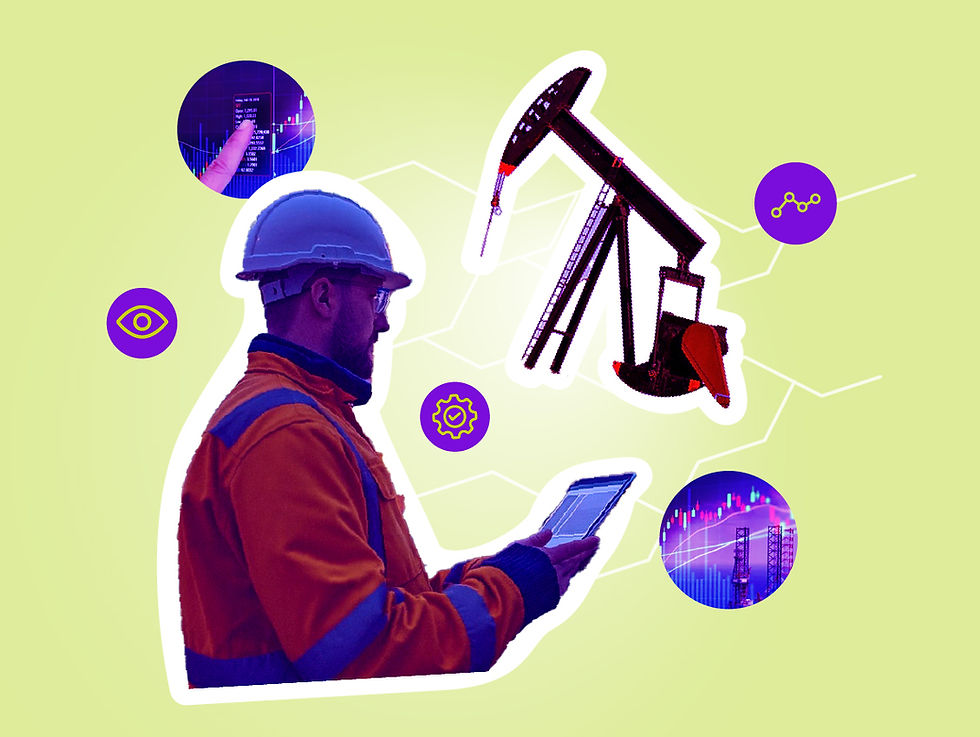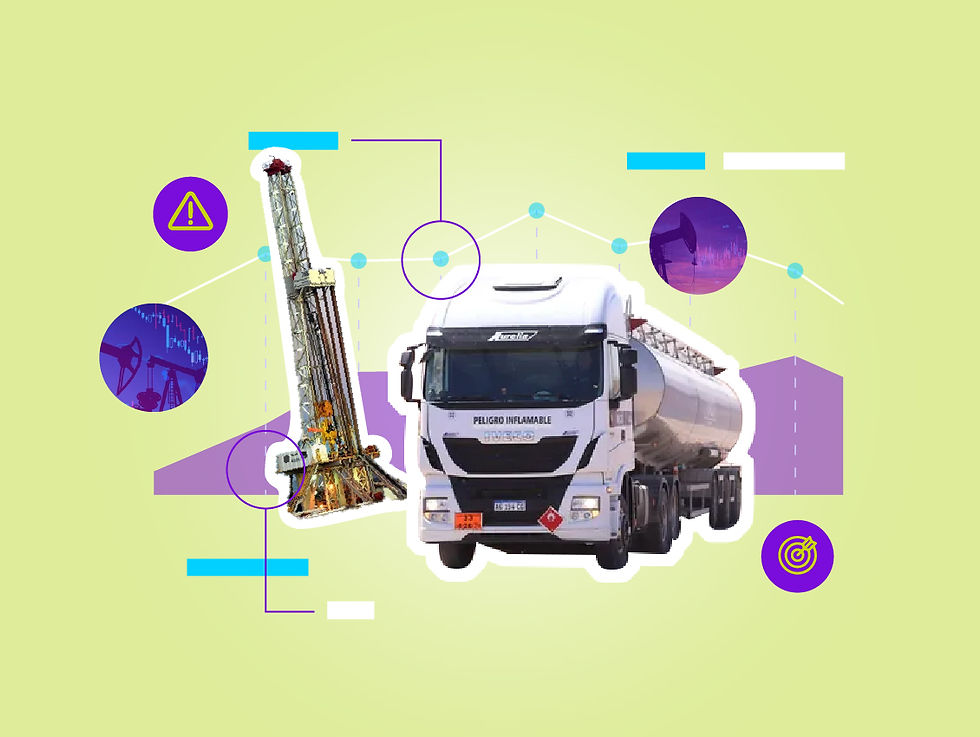Oil & Gas Technology: Real-Time Data for Smarter Decisions
- Paulo Srulevitch
- Aug 12
- 4 min read
Updated: 1 day ago

In the oil industry, late data means lost decisions. By automating data capture and visualization, companies can react in real time, optimize crude oil transport, reduce costs, and improve operational efficiency. With cloud technology, it’s possible to connect sensors, wells, and reports in simple, up-to-date dashboards. The result: operations that are more connected, productive, and ready for the challenges of Vaca Muerta and other strategic basins.
In oil and gas, every minute lost has a cost. And every late datapoint is an opportunity gone. In productive regions like Vaca Muerta, operations, engineering, and leadership teams know what it means to work under pressure: wells that demand constant attention, complex monitoring systems, and decisions that need to be made fast. But how do you make the right call when your data is outdated—or worse, incomplete?
The answer: cloud technology as a strategic ally to optimize processes, boost efficiency, and reduce costs at every stage of the operation.
The Problem: Late or Missing Data
Many oil and gas companies still depend on manual reports, spreadsheets, and disconnected systems. Pressure, temperature, or flow data can take hours—or even days—to be processed. That delay doesn’t just slow production. It turns decision-making reactive, which means higher losses and lower control when it matters most.
The Solution: Sensors Connected to Real-Time Dashboards
Today’s energy sector has the technology to collect, process, and visualize field data without manual intervention.
With modern platforms like cloud-based control systems, oil SCADA software, and serverless solutions, your operation gains full visibility from the wellhead to the corporate office. That means real-time pressure, temperature, production volume, and any other critical variable.
Add intuitive dashboards, centralized storage, and secure access, and everyone—from production engineers to CTOs—works with the same live data.
How It Works
Field sensors connected to secure transmission systems
Data ingested into the cloud through oil SCADA software
Automatic processing and visualization in dashboards accessible from anywhere
Real-time alerts on anomalies so you act before issues escalate
Why It Matters in Oil & Gas
Because this is an industry where conditions shift by the minute. And every unproduced barrel is money lost.
Having accurate, live data isn’t a luxury—it’s a competitive edge. Better yet, you don’t need to replace your entire infrastructure. Cloud-based analytics integrates with what you already have, unifying systems without tearing them down.
Concrete Benefits
Lower operating costs by reducing manual tasks
Faster production response through real-time visibility
Better data quality and traceability
Clear dashboards that improve decision-making
Agile response to changes in demand or field conditions
Compliance support through automated documentation
What Companies Are Saying
More and more oil and gas operators are investing in solutions that connect the field to the boardroom. It’s no longer just about monitoring—it’s about anticipating. Recent projects show how oil technology helps detect anomalies before they cause downtime, adjust production volumes in real time, and make decisions based on trusted data.
Real Words, Real Results
We’re not here to flood your operations with buzzwords. We’re here to solve real problems.
More efficient crude transport through accurate flow data
Better forecasting with historical data integrated
Fewer losses and more predictability
Greater control over intermediates and refined products
Integration of advanced technologies to identify sedimentary basins more strategically
Designed for You: Engineers, Operations Leads, and CTOs
We know change brings resistance, especially in oil and gas. That’s why our Cloud Analytics solution was built with simplicity and immediate ROI in mind. You don’t need to be a data expert—or have a dedicated analytics team. From day one, Cloud Analytics turns raw data into useful insights.
It’s a fast, automated solution that converts IoT sensors, manual logs, or local servers into interactive dashboards and business alerts. Deployed directly in the cloud, it centralizes, processes, and visualizes key data without complex development or extra infrastructure.
Whether you’re leading operations, planning, or IT strategy, having access to clear, real-time data gives you something invaluable in this industry: advantage.
In Summary
Oil and gas is moving forward. And in Vaca Muerta, that shift is already happening. The companies that use their data best today will be the ones leading tomorrow.
Still relying on manual reports? Still making decisions with incomplete data?This is the moment to change.
See your critical data in real time.Connect field and office, improve production efficiency, and make sharper decisions—from the first well to the last valve.
FAQ
Do I need to replace all my existing infrastructure?
No. You can integrate current technology (SCADA, oil industry software, sensors, etc.) into a cloud-based solution without ripping and replacing. We make everything work as one unified, modern system.
Is this only for large operators, or also for mid-sized companies?
Both. Across the industry, companies of all sizes are adopting these solutions to optimize processes, reduce costs, and adapt to production and sustainability demands.
What’s the impact on costs?
You save on labor hours, avoid unplanned shutdowns, reduce losses from manual errors, and make more efficient use of crude oil. Over time, it directly boosts profitability.
Does Teracloud have experience in oil & gas?
Yes. We work with oil and gas companies across the region, especially in areas like Vaca Muerta. We know the technical, operational, and regulatory challenges—and deliver real cloud solutions that integrate smoothly.

Tech Writer
Paulo Srulevitch

